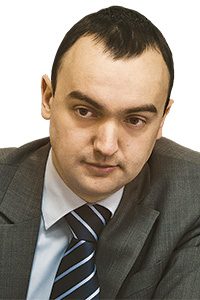 Let’s proceed from the facts: President Alexander Lukashenko has taken part in Organisation of Islamic Co-operation Summit. In general, the President of Belarus’ visit has been highly symbolic and pragmatic, with Minsk reaffirming close ties with Ankara. Both parties have pledged to reinvigorate their bilateral co-operation. At a closed meeting with Recep Tayyip Erdogan, President Alexander Lukashenko called for an ‘update’ of the bilateral agenda and setting a ‘roadmap’ for the two countries’ relations.
Let’s proceed from the facts: President Alexander Lukashenko has taken part in Organisation of Islamic Co-operation Summit. In general, the President of Belarus’ visit has been highly symbolic and pragmatic, with Minsk reaffirming close ties with Ankara. Both parties have pledged to reinvigorate their bilateral co-operation. At a closed meeting with Recep Tayyip Erdogan, President Alexander Lukashenko called for an ‘update’ of the bilateral agenda and setting a ‘roadmap’ for the two countries’ relations.
The meeting took place in the run-up to the Belarusian-Turkish intergovernmental commission meeting which is due to take place in May and will reveal further details. But our two countries need to take substantial steps to raise mutual trade to $1bn: the target voiced by Prime Minister Andrei Kobyakov during the Belarus Investment Forum in November 2015. In 2015, mutual turnover equalled $629.9m.
Another important outcome of the Istanbul visit is the Belarusian President’s meeting with his Kazakhstan counterpart Nursultan Nazarbayev. Apart from reaffirming the common agenda of the EAEU and CSTO, the two leaders discussed practical questions of mutual interest. Mr. Nazarbayev drew attention to the expanded capacity of Kazakhstan’s transport infrastructure, which could facilitate Belarus-China trade relations. It seems that within the ambitious Chinese ‘One Belt — One Road’ initiative, Belarus and Kazakhstan aim to elaborate their common specific ‘China-related’ agenda, as part of the EAEU-CIS-CSTO framework.
Mr. Lukashenko’s visit to Istanbul went beyond bilateral meetings (including negotiations with the leaders of Azerbaijan, Qatar, Pakistan, Indonesia, Afghanistan). The Belarusian leader took part in the summit of the Organisation of Islamic Co-operation — a venue bringing together the heads of all Muslim states once every three years. This too was symbolic and practical. It goes without saying that Belarus is a country deeply involved in common affairs with numerous representatives of the Muslim world. Minsk maintains close and important relations with Turkey, the United Arab Emirates, Qatar, Saudi Arabia, Syria, Iran, Iraq, Pakistan, Indonesia and a number of other states. In fact, Belarus’ ties with Muslim states, alongside Belarus-Russia, Belarus-EU and Belarus-China partnership, constitute a major vector of the country’s foreign policy, economic, trade and investment co-operation.
Belarus and the Muslim world also share commonalities with regard to global issues. They are developing nations striving for a just and secure world economic order, which provides equal development opportunities for every member of the international community. Bringing an end to wars, enhancing peace-building and post-conflict reconstruction efforts, providing equal access to financial resources and new technologies — these are the spheres where Belarus’ and its Muslim partners’ interests are not only common, but also complementary.
Yuri Tsarik, Center for Strategic and Foreign Policy Studies











